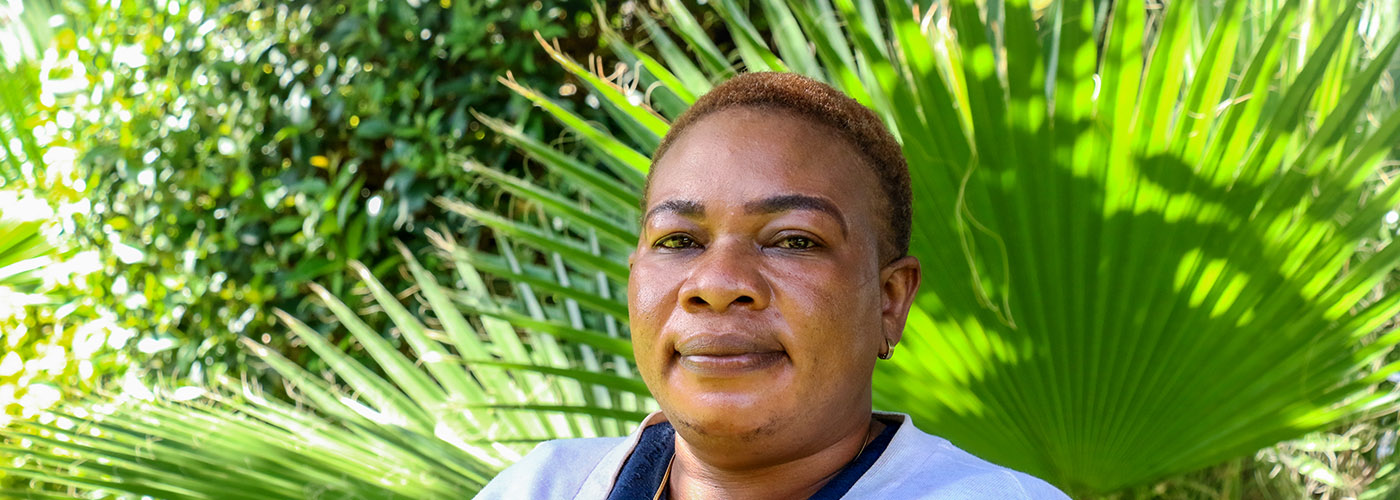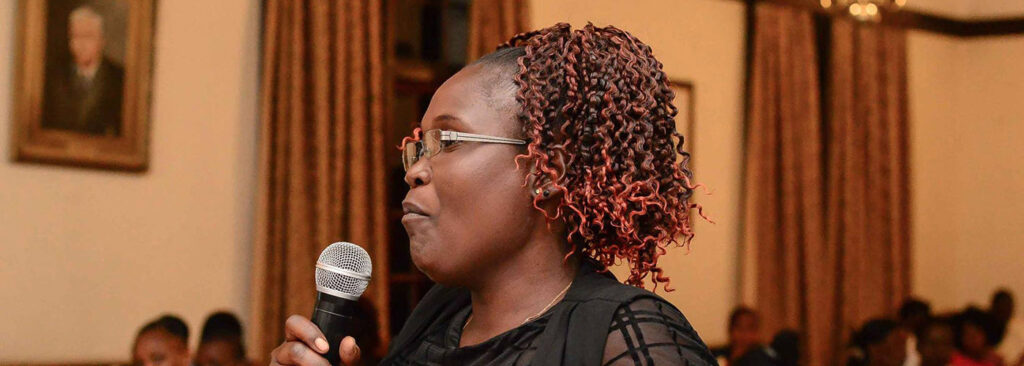Hon. Susan Matsunga began her political journey in 1999 after joining the then recently formed opposition party, Movement for Democratic Change (MDC). She was elected MP in the 2018 general elections, only to be recalled in 2020. But she presented herself as candidate for the Citizen’s Coalition for Change in Mufakose Township in Harare, winning her seat back in Zimbabwe’s March 26 by-elections. This is her story.
What challenges did you encounter?
I’m a bit angry that there wasn’t immediate media coverage of all the women who participated in the by-elections. There were no celebrations, so I went on Twitter to celebrate and share my joy with my followers.
The elections were not easy. Competing against male candidates directed a lot of hate towards me. I’m a single mother, and people were telling all kinds of stories about me. At some point, I wanted to go to the police. But in the end, I decided I would face these guys and beat them in the elections, and that’s what happened. I won with 76 percent of the vote – far better than the men.
Another issue I faced was financial. Men can sell their houses and cars to fund their campaigns, but for me, it was hard. I have to think about my family, my children – I can’t just risk everything for the elections. That’s one area that needs to be fixed in terms of campaign funding for women.
What was your campaign like?
My campaign was mostly smooth. I first sat with my family because those are the first people whose full blessings you need to go out there. But as I mentioned, I had been recalled from Parliament previously. So I’m grateful to our party leader, President Nelson Chamisa, and the citizens for believing in me. We ran door-to-door campaigns, encouraging voters to register for this election. Voter registration wasn’t about me campaigning to get votes, but rather getting the community to understand that they have a right to vote. Educating people on voting rights is very important.
As a woman, I also humbly took the time to tell citizens my story. We want to uplift Mufakose, that’s why I’ve stayed here all my life. I also aspire to live in the upmarket areas in Harare, but it’s critical that I stay here within the community. I want to play a part in uplifting the people in this township, reducing drug abuse, and improving overall conditions for everyone.
What lessons did you learn while you were campaigning?
I learned that to be successful, you need to be with the people, talk to them, and involve the citizens in your community. If I have become popular, it’s because I go where they are. I have my own church, but every other weekend I visit a different one in the community so I can meet and be with everyone.
How were you feeling as you went to cast your vote?
I was asking God to be there for me. I had worked very hard on this election. Of course there are no guarantees, but I knew I had worked tirelessly. I just told myself to keep calm, even when I was afraid. I knew that the first results to be announced would set the pace for the rest. And sure enough, when they were announced, I was in the lead.
What challenges did you face on election day?
Personally, none. But there were some inconsistencies among the observing teams. People were bringing voters to the polling stations and encouraging them to vote for their parties. I had to ask the police to intervene. I was quite surprised that I won even in these districts. That’s when I realized how hard I had worked in the community. The people knew exactly who they wanted to vote for.
Was there anything special about the by-elections?
Yes. Previously, young people didn’t want to vote. But this time around, we saw quite a lot more of them register. And do you know that it was mostly women and youth who turned out? Men generally don’t consider by-elections to be a big deal. It’s always like that. So I had to work hard to educate people about the importance of turning out. If you look at the numbers, I received only half the votes now that I got in 2018. So women and young people really came out to vote for me in droves, even though the overall turnout was lower than the general elections!
What does your reinstatement into office mean for you?
I have a lot of projects that I had started in Mufakose and I would like to finish them. There’s a big hall where we offer training and other activities to benefit the Mufakose community. We had started renovating the hall, and I would like to see that through. I was also working on a number of projects dealing with drug abuse, women’s empowerment, and even financial aid projects, so being back in Parliament will help me draw more support for them.
What are your goals as an elected leader?
My wish is to have more women in politics, from different political parties, since we represent the majority of the population. When I work, I make sure I encourage more young women so when the next general elections come, there are even more of us participating.
Secondly, I want to train more women, or make sure as many women as possible to get some form of education. This will really help them acquire and hold posts of influence.
We also need to nurture young people more and not exclude them from training and leadership positions. I always invite young people to my campaigns because at a certain point, I will retire and I need to have groomed new leaders by then.
Do you have any women you look up to?
My party’s vice president Lynette Karenyi-Kore inspires me a lot. When I entered politics in 1999, Hon. Lynette took me under her wings. From then on, I had various roles in her campaign teams, and she would guide me in my steps. I also look up to Theresa Makone, who has always been there for me in my political journey.


